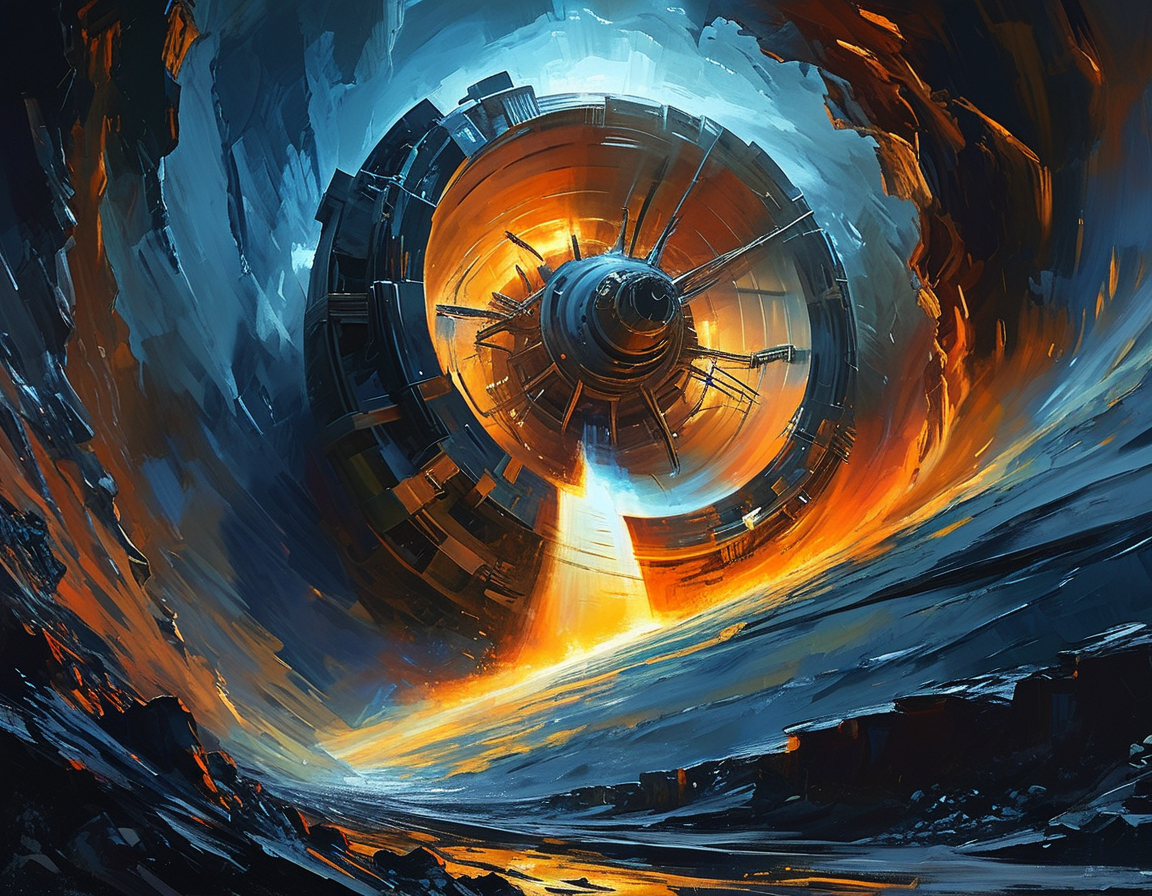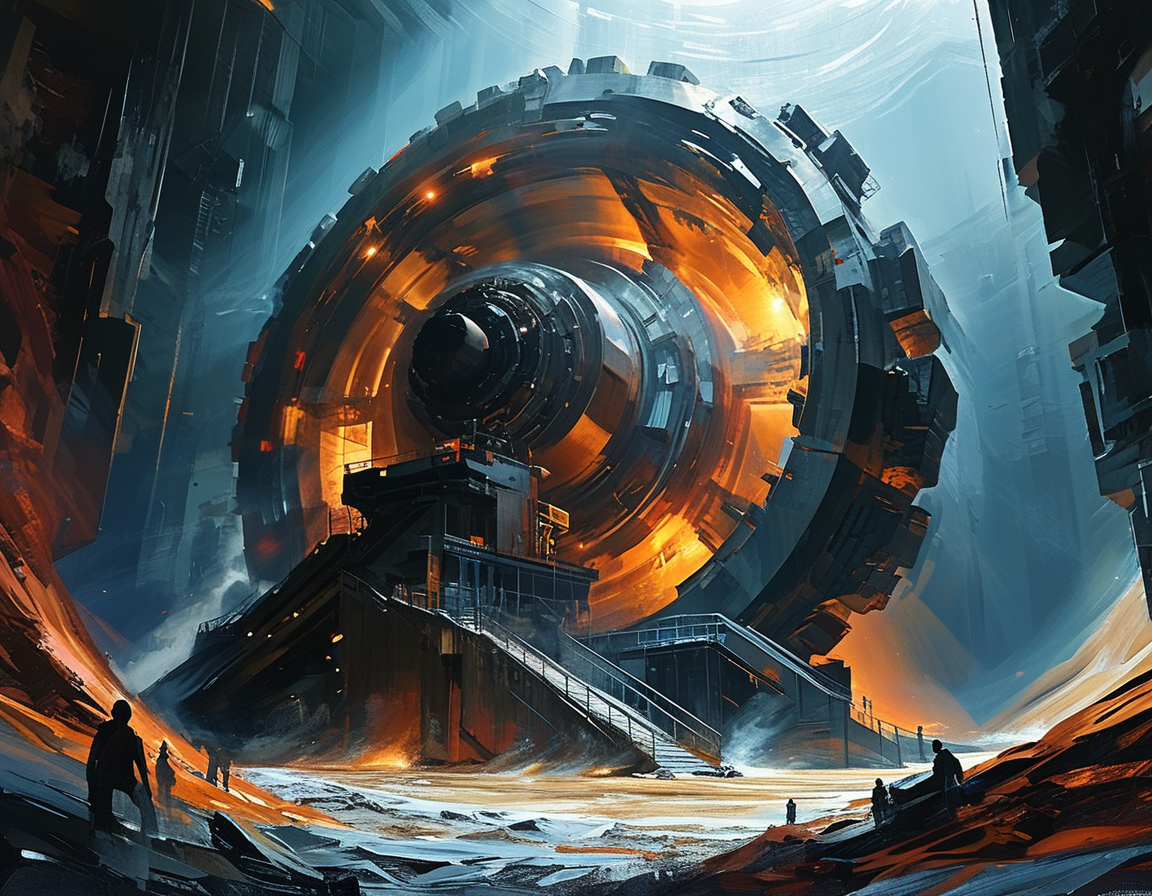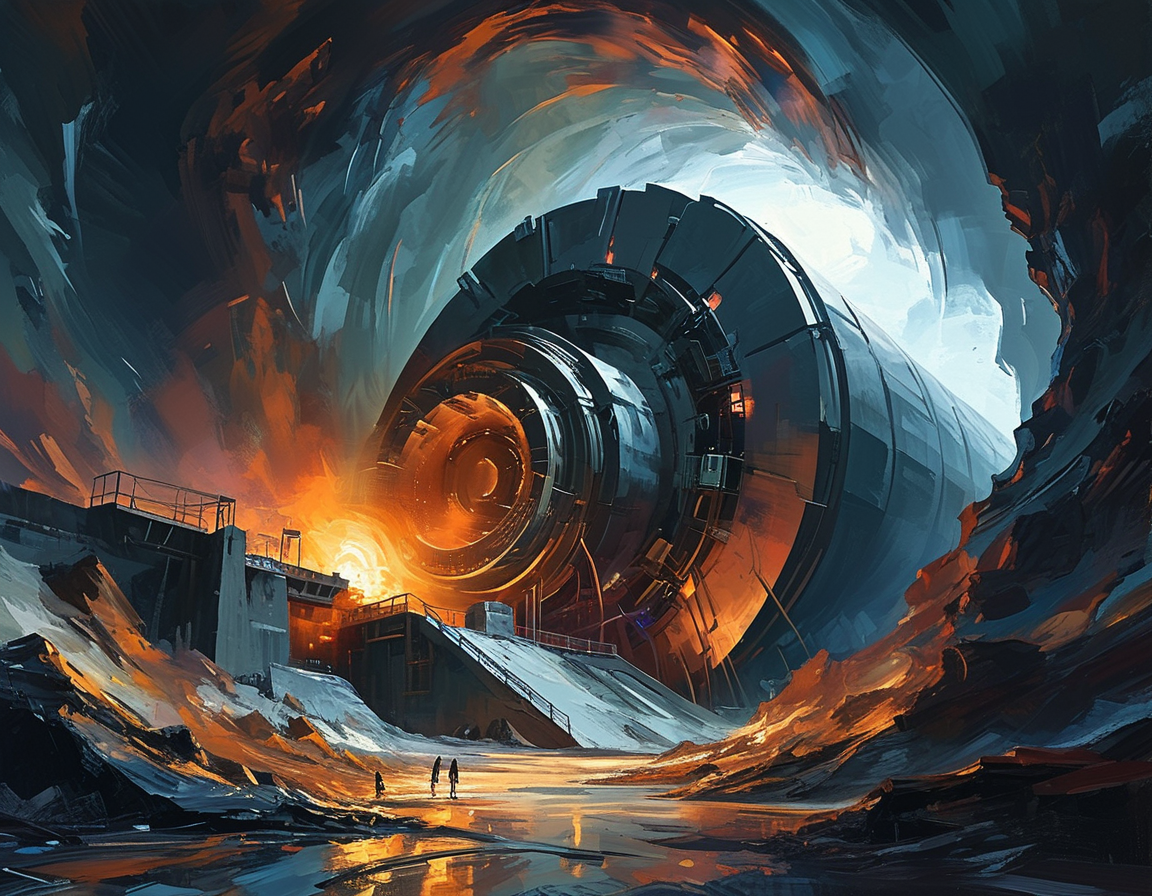Elon Musk is known for his bold statements and wild ideas. Recently, he turned his attention to CERN’s Large Hadron Collider. He labeled it a ‘demonic technology,’ which sparked curiosity and concern. But is there more to this comment?
The Large Hadron Collider is not just a scientific tool. It’s a 17-mile long machine, located underground near Geneva, Switzerland. It has contributed greatly to physics. Critics argue it has also contributed to rising fears. Some see it as a powerful device that could cause destruction of some kind.

Musk’s comments were made on Twitter in a meme format. His followers reacted with mixed feelings. Some laughed, while others voiced their concerns. Comments about a ‘death machine’ began trending. Could the collider really lead to disaster?
Turning back to its purpose, the collider was built for exploration. It collides particles at high energy levels. This helps scientists understand the universe’s fundamental forces. It famously discovered the Higgs boson in 2012, a milestone in particle physics.
However, with significant technological advancements, come fears. The fears surrounding CERN have deep roots. Over the years, many bizarre conspiracy theories have emerged. Some believe it might open a black hole or unleash chaos. Others argue there are sinister motives.

Musk’s playful jab at CERN reignited these conversations. Words have power, especially from influential figures. As a billionaire tech mogul, Musk’s influence stretches far. He often impacts public opinion with a single tweet. For some, it gave new life to long-standing conspiracy theories.
Others, however, took his tweet lightly. They shrugged it off as humorous. Yet, many felt a sense of unease. Why does such a respected figure joke about a scientific tool?
CERN’s image is complicated. On one hand, it’s a beacon of scientific progress. On the other, it’s a source of fear for some. The Shiva statue at the site, for example, is often misinterpreted. To many, it represents destruction, while scientists see it as a symbol of regeneration.

Despite scientific backing, skepticism lingers. Theories persist that claim hidden agendas or occult practices. Yet these theories lack substantial evidence. Prank videos, like the one from 2016, don’t help, either. A staged ritual led to public misunderstanding.
The truth is that the Large Hadron Collider is safe. Scientists assert that it won’t endanger Earth. However, fear remains, fueled by memes and social media. If misinformation spreads quickly, where does that leave us?
Musk’s tweet illustrates the importance of clear science communication. Complex topics need straightforward explanations. Scientists must demystify their work for the public.
So, should we be afraid of the Large Hadron Collider? Many scientists believe it poses no risk. They focus on its contributions to understanding the universe. The potential dangers appear minimal. Mishaps just are not a concern.
Yet, one wonders how much trust we place in technology and figures like Musk. What about the implications of influential comments?
As technology advances, ongoing skepticism is natural. Some see the collider as wondrous. Others view it with wariness. Where each person lands depends on their perspective and understanding.
Ultimately, probing deeper often leads to valuable insights. It’s healthy to question powerful tools. However, we’re better off seeking factual answers than indulging in fear. The divide between public perception and scientific accuracy can be profound.
Closing thoughts suggest a balance. Asking questions is vital. But pursuing clarity through evidence is equally essential. Whenever a powerful tech critic voices an opinion, contemplate the impact of that event. Will it elevate conversation, or ignite fear?
The dialogue surrounding the Large Hadron Collider is ongoing. Elon Musk’s remark was but a drop in an ocean of discussion. It encourages reflection on how we relate to science in our increasingly complex world.
Leave a Comment